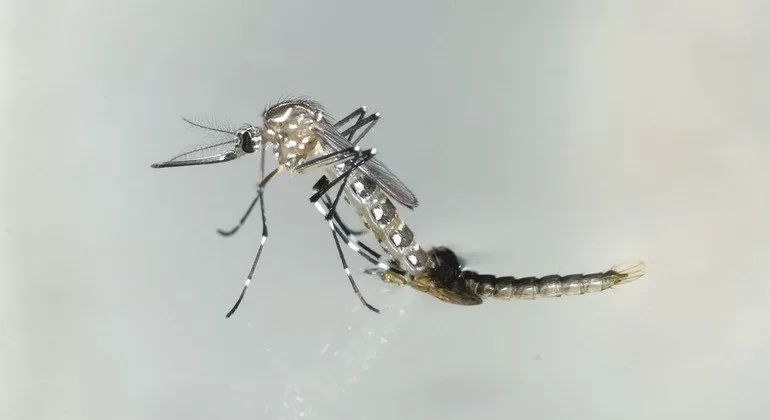
Rising global temperatures are anticipated to expand the reach of dengue, a mosquito-borne illness responsible for thousands of annual fatalities. A scientist from the World Health Organization (WHO) has issued a warning, urging health authorities to begin preparations to combat the disease.
Current data reveals that approximately 20,000 individuals succumb to dengue fever each year, primarily in regions of Asia and South America, with a fatality rate of one death for every 100 patients.
In 2023, up until October, over 4.2 million cases and more than 3,000 dengue-related deaths have been reported across 79 countries and territories worldwide, according to information from the European Centre for Disease Prevention and Control. Countries like India, Brazil, Peru, Bangladesh, Bolivia, Argentina, Mexico, the Philippines, Nicaragua, and Colombia have reported the highest number of cases.
Sir Jeremy Farrar, the chief scientist at WHO, has emphasized that the warming climate is enabling disease-carrying mosquitoes to extend their range further into the United States, Europe, and potentially new areas in Africa. Although approximately 1,200 cases are documented in the US each year, with nearly 600 originating from local infections, concerns are mounting that the disease is spreading. This concern was highlighted when California recorded its first locally-acquired infection in a decade last month.
Experts suggest that dengue fever could become endemic in the US if infected mosquitoes from Mexico manage to migrate further northward. Professor Sir Peter Horby, director of the Pandemic Sciences Institute at Oxford University, pointed out that dengue, traditionally associated with South American and Southeast Asian regions, has now extended its reach northward, even into the Mediterranean.
It is believed that infected travelers could introduce the virus if they are bitten by local mosquitoes, which can then become carriers and transmit the disease to others. Farrar has called upon health authorities to make preparations.
As early as April, WHO cautioned that climate change could trigger global outbreaks of mosquito-borne diseases like dengue, Zika, and Chikungunya.
In recent decades, infections caused by arboviruses, including dengue, Zika, and Chikungunya, have experienced a substantial surge worldwide. WHO estimates that roughly half of the world’s population is now vulnerable to dengue, with an estimated 100-400 million infections occurring annually.
Dr. Raman Velayudhan, Unit Head of the Global Programme on Control of Neglected Tropical Diseases at WHO, emphasized the urgency of raising awareness about the global threat of arboviruses. He pointed to factors such as population movement, urbanization, and associated challenges with water and sanitation as drivers for the ongoing expansion of disease-carrying vectors into new regions. Velayudhan also noted that climate change, particularly increased precipitation, higher temperatures, and elevated humidity, create favorable conditions for mosquitoes, enabling both the virus and the vectors to multiply more rapidly.











